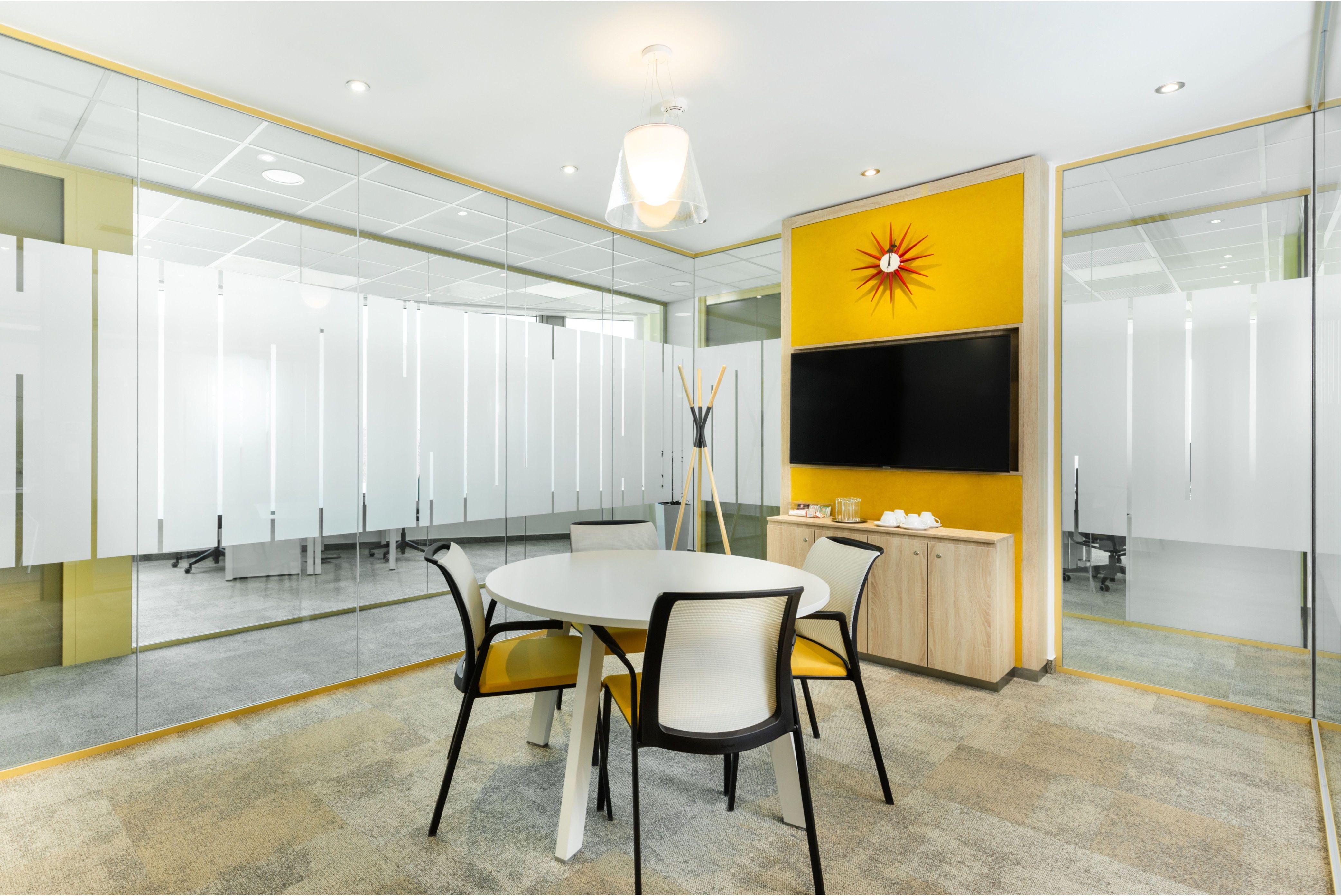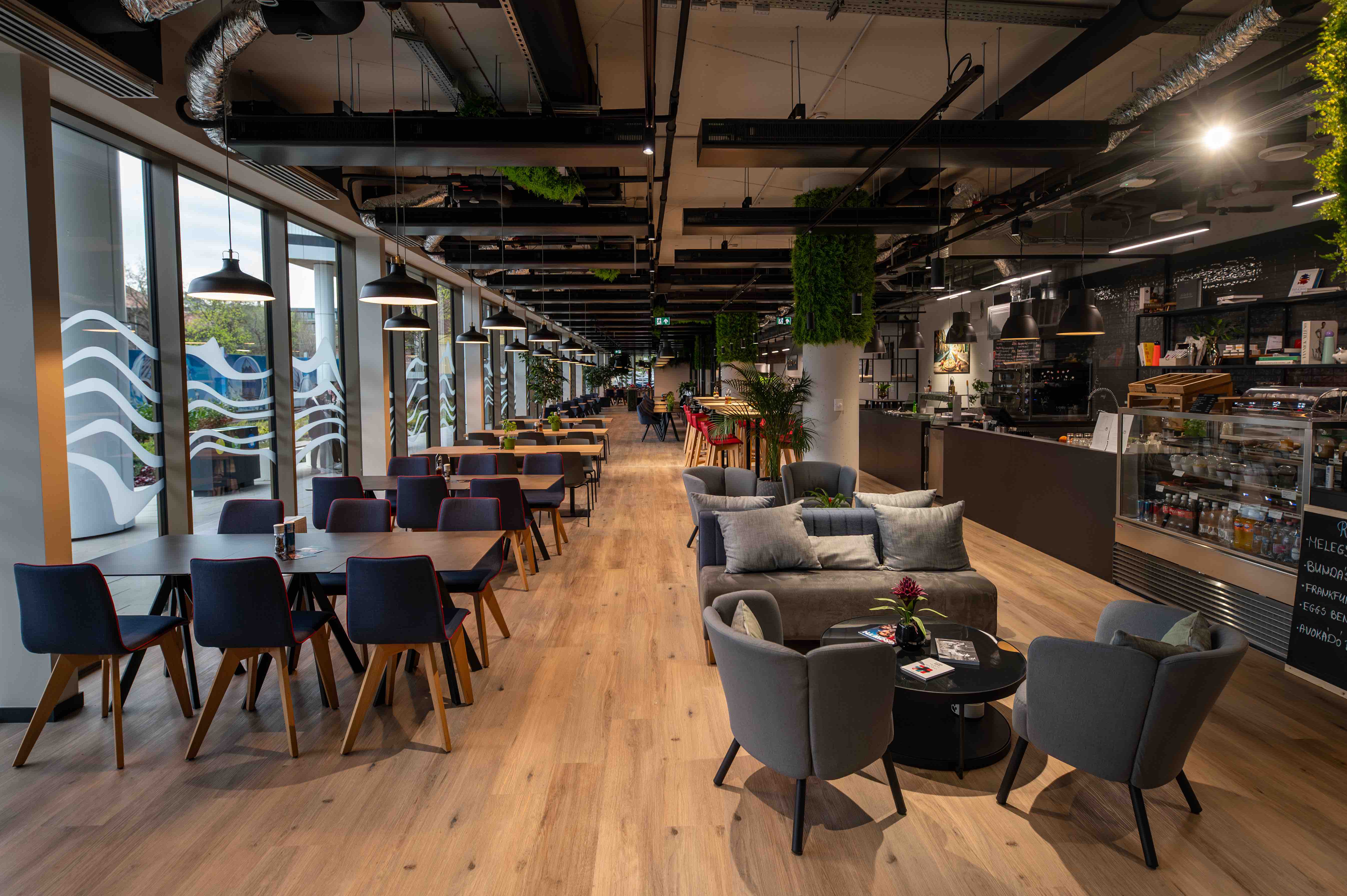Does the office make the employer? Workplaces becoming community spaces

Employees have enjoyed the freedom to choose where they work—being away from the office community. But does it provide motivation, support, and knowledge transfer? Not so much. In a survey this spring, four-fifths of workers answered that they wanted to return to the office entirely or in a hybrid model. The Hungarian Service and Outsourcing Association (HOA) aimed to explore the possible solutions from different aspects during their Business Breakfast this October.
Even before the pandemic, interior design and even decorative elements of offices have been an essential asset in employer branding. However, the past years have introduced an entirely new era in office work. The office has lost much of its original function as remote work gained popularity in response to the pandemic regulations. At the same time, its importance in teamwork and employee identity has increased.
According to the World Green Building Council (WGBC), office design has become more crucial to workplace efficiency than ever before: better air quality can double cognitive performance, distracting noise can reduce performance by up to 66%, and diverse, varied spaces can reduce turnover by 28%.
The rise in the value of the appearance of workspaces is illustrated by the fact that 41% of job seekers base their decision to apply for a job on the design of the office, according to WGBC data. This is not surprising, given that the home office has spoilt us. We now expect offices to offer working conditions at least as good as, if not better than, those of the comfort of our homes.
There is no question that employees would go back...
"According to our survey published in May, 78% of employees globally indicated that they would like to return to the office, either partially or fully, while in Hungary the figure was 80%," said Petra Polgár, chief operating officer of Randstad Hungary, at the HOA's October Business Breakfast.
According to the results of the Randstad Workmonitor, which covers 34 countries, men are more likely to miss the office, while women prefer to work from home. The expert added that today, their daily experience with candidates shows that there is much less of a desire to return to office work and that hybrid solutions are preferred by employees.
...but not to the old office
"As working conditions have become more important than ever before, it has become clear that people will only return to the office if it is an environment that is adaptive to their needs," said Balázs Agócs, director of workplace strategies at Jones Lang LaSalle (JLL). Employee experience and wellbeing have become a top priority and a fundamental principle, as the office has lost its function as just a place to work.
It has evolved into a desired destination where employees like to go, spend time, and collaborate. Employers need to react and take quick action to the change in needs.
According to Balázs Agócs, it is no longer enough to transform the office: cultural changes, better communication, and targeted education are also needed. A need for a whole new workplace strategy has emerged, and employees should also be involved in its creation. He also added that as demand changes rapidly, switching offices may become more frequent, so the stakeholders of office sites have to be prepared.
There are no one-size-fits-all solutions
"Companies are a bit left to their own devices, trying to come up with different answers and figure out what they should do in this situation, while often the legal framework does not necessarily give them a grip either," said Monika Slomska, president of the HOA.
Hédi Bozsonyik, head of the labor law team at Szecskay Law Office, agreed that domestic labor legislation leaves it up to the parties to develop a framework for flexible working.
"This is why it is important that there is an agreement between the employer and the employee on working from home, as without this, the flexible working hours that are increasingly expected on the market cannot be guaranteed," the lawyer said.
Different strokes
Executives present at the event reported very different practices. Attila Hernold, managing director of Albemarle's shared service center (SSC) in Budapest, spoke about how working from home has been included in the collective agreement and policy during the pandemic, and after the reopening and the arrival of the hybrid model, a new contract was signed with anyone who would work from home fully or partially.
In contrast, at Thermo Fisher Scientific's Global Service Center in Budapest, "the framework for working from home has been governed by a home office agreement with employees since the very beginning, even before the pandemic," said Miklós Koczor, head of the GBS.
The experts agreed that hybrid solutions are needed, as well as a framework that allows for efficient collaboration and transparent communication between employer and employee. To successfully implement this long term, maximum flexibility is needed on the part of decision-makers and managers, which may include targeted changes to the framework where and when necessary.
SUPPORT THE BUDAPEST BUSINESS JOURNAL
Producing journalism that is worthy of the name is a costly business. For 27 years, the publishers, editors and reporters of the Budapest Business Journal have striven to bring you business news that works, information that you can trust, that is factual, accurate and presented without fear or favor.
Newspaper organizations across the globe have struggled to find a business model that allows them to continue to excel, without compromising their ability to perform. Most recently, some have experimented with the idea of involving their most important stakeholders, their readers.
We would like to offer that same opportunity to our readers. We would like to invite you to help us deliver the quality business journalism you require. Hit our Support the BBJ button and you can choose the how much and how often you send us your contributions.








